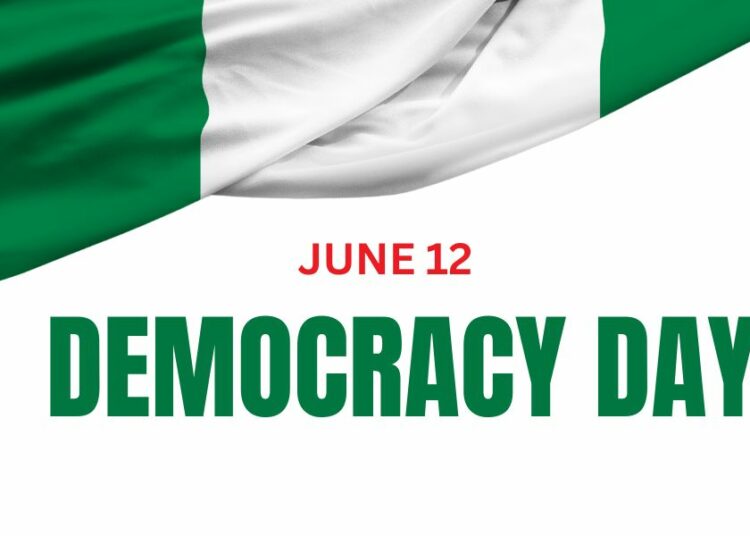Today evokes good and bad memories about Nigeria’s democratic journey.
Exactly this day 32 years ago, the General Ibrahim Babangida-led military junta annulled what was widely acclaimed as Nigeria’s freest and fairest election, conducted on June 12, 1993.
In the election conducted by the Prof. Humphrey Nwosu-led National Electoral Commission, business mogul and philanthropist, Moshood Kashimawo Olawale (MKO) Abiola, was on the cusp of victory before the process was stopped.
That annulment, the agitations for its revalidation, and the military crackdown that followed cast Nigeria down a precarious route that threatened the very foundations of its nationhood and brought the country to the brink of collapse.
It was Nigeria’s most trying period post-civil war. After General Babangida stepped aside as the head of the military regime, his successor, General Sani Abacha, had to deal with the pro-democracy activists’ demand for the revalidation of the election. Things took a dramatic turn when the late Abiola declared himself president a year later on June 11, 1994, at Epetedo in Lagos, and General Abacha promptly arrested and charged him with treason. This only galvanised more groups, labour unions, and individuals to call for Abiola’s release and his installation as president.
The Abacha regime came down very hard on perceived opponents. Some were clamped in detention, some were killed or maimed for life, while many were harried into exile. Many simply disappeared without a trace, while a few were assassinated, including Abiola’s wife, Kudirat.
In a twist of fate, both the jailer (Abacha) and the jailed (Abiola) later died in 1998, paving the way for the restoration of democracy a year later in 1999 following a short but successful transition midwifed by General Abdulsalami Abubakar (rtd), at the end of which former Head of State, Chief Olusegun Obasanjo, emerged from prison to become president. While Obasanjo, in his inaugural speech, proclaimed May 29—his inauguration day—as Democracy Day, President Muhammadu Buhari was to move it to June 12 in 2018.
Some of the notable figures in that struggle to retrieve governance from the military junta have received national recognition. Abiola has been posthumously conferred with the highest national honour of Grand Commander of the Federal Republic (GCFR), an award reserved for presidents and heads of state, while both his running mate, Ambassador Baba Gana Kingibe, and the late pro-democracy and human rights advocate, Chief Gani Fawehinmi, received the second highest national honour, the Grand Commander of the Order of the Niger (GCON). Commendably, Buhari also tendered an unreserved apology to the Abiola family for the injustice done to it, pledging that such injustice would not be allowed again in the country.
As a newspaper, we recall that the APC-led federal government also promised that other persons who played active roles in that democratic struggle would be compiled and honoured. A day like this provides an opportune moment for the fulfilment of that promise. A person like Prof. Humphrey Nwosu, under whose watch that landmark election was conducted, deserves his flowers.
Above all, the struggle to have genuine democracy in Nigeria is far from over.
While the credibility of the 1993 election remains intact, the same cannot be said of the elections being conducted in the country these days. Many present-day politicians are so desperate to achieve political power that they will go to any length to achieve their end—most of the time bypassing the rules for fair electoral conduct. Also, due to weak and sometimes compromised electoral and judicial officers, the wrong people emerge as election winners and the judiciary affirms them. This defeats the essential value of the democratic choice of leaders through popular mandate.
The June 12, 1993 election stood out due to the unacrimonious nature of the electioneering and polling. People freely voted for their preferred candidates irrespective of religious and regional cleavages—unlike the last general election, where issues of religious and regional identity, as well as violence, marred the process. In some parts of Nigeria, citizens were threatened against—and forcibly prevented from—voting for their preferred candidates. The failure by stakeholders to abide by the process has led to widespread rejection of poll results, leading to long drawn-out litigations.
After 26 years of unbroken democracy, most Nigerians are getting poorer and poorer, and there is less guarantee of the freedom of expression. The government and its security agencies have grown increasingly repressive against peaceful protest—the height of it being the violent suppression of the EndSARS protest in Lagos in October 2020 and the EndBadGovernance protests in August 2024. There is also growing concern that the government is weaponising the Cybercrimes (Amendment) Act 2024 to persecute journalists and activists across Nigeria.
One of the driving forces for the democratic struggle was to reclaim the country from corrupt military men. Unfortunately, the struggle this time should be how to reclaim the country from corrupt politicians who seem to have captured the country and its institutions, and are using their positions to enrich themselves at the expense of the country and the people. As a result, the hope of a glorious nation that pro-democracy campaigners paid huge prices for seems to be a pipe dream.
As Nigerians mark another Democracy Day today, the President Bola Ahmed Tinubu administration and all politicians in the country need to take a critical look at themselves and their conduct to see whether they represent the good or the bad part of Nigeria’s democracy.
Beyond the celebratory events and speeches by the president and various leaders in the nation, Nigerian politicians need to commit themselves to the principles of genuine democracy. That is the only was to make it meaningful to the citizenry.





